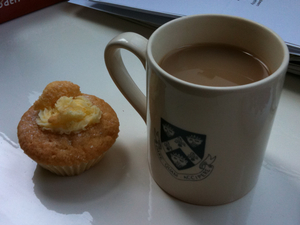 Yet more democracy in action last night at the Environment, Culture and Community Safety OSC.
Yet more democracy in action last night at the Environment, Culture and Community Safety OSC.
I was there for the community safety and town centre parts of the meeting which come under my portfolio. In many ways it was a relatively straightforward meeting. There wasn’t anything particularly contentious on the agenda, although as the deficit is addressed I’m sure that is to come. The full agenda is on the council’s website (which does work from time to time, I promise you) but to give a few selected highlights.
10-646 Domestic Violence Strategy
Domestic violence is woefully under-reported and, unlike most crimes, almost all victims are repeat victims. The problem is that domestic violence and abuse often take place in situations that are hard to leave, perhaps because they are in the home, and the victim has nowhere else to go, or it might be that children are involved. In many cases there is a feeling of shame or embarrassment, particularly where the situation doesn’t fit the stereotypical man abusing woman scenario (one of the specific areas of focus are abuse in LGBT relationships).
10-647 Community Safety Division – Annual Quality and Performance Review
This is one of those monster reports that covers everything (each service produces one of these a year), but worth dipping into if you are interested in the sorts of things the council does to make Wandsworth safer.
This prompted a lot of discussion on Neighbourhood Watch (NW), which is one of my pet subjects because I think NW has such great potential and is one of the policy priorities for the coming years. We’re trying to see how we can expand the benefits of NW into hard-to-reach areas, for example council estates have traditionally had much poorer coverage, but also to see how we can create networks of watches and whether we can help in strengthening communities.
Of course, one of the problems with this is that it is uncharted territory. Wandsworth is something of a leader in this field and it’s difficult to know what will and won’t work. It’s a subject that I’ve touched on before, that to develop and improve you often have to accept that your experiments may end in failure, which is not something that sits well in politics. While exciting, I won’t pretend that I don’t have the occasional worry!
10-649 Policing in the 21st Century
This is the council’s response to the government’s white paper. It is generally supportive, although one of the biggest parts of the proposed reforms, directly elected police commissioners, will not affect London as the Mayor would take on that role.
The Labour group voted against this, disagreeing with the abolition of the Metropolitan Police Authority (a better reason than disliking the title of a white paper which they said they largely agreed) and I’m wondering if there’s a degree of oppositional politics starting to return. It is an unusual time for all tiers of government – national, London and Wandsworth to be (largely) politically aligned. It hasn’t happened for 13 years, and then probably only because there was no London government!
10-651 Petition – request for CCTV installation in the area of Leverson Street
This was the council’s response to a petition asking for CCTV to be installed in what is seen as a trouble black spot.
The council rejected this. For me there is a big issue about installing CCTV in primarily residential areas. As a matter of principal it feels wrong to me to have these areas surveilled. However, there are also practical concerns.
CCTV works well in areas where the problem is ‘contained’. So, for example, CCTV in town centre areas can help deter problems (or justify prosecutions, about half of all cases the local police bring use CCTV evidence) that are specific to that sort of area, for example issues around disorder or theft. When dealing with anti-social behaviour problems these can easily relocate, there is little difference between street-corners. In effect the problem is moved, not solved.
And that is the second problem, very often these problems are much better tackled by joint work between the police, council and (frequently) social landlords. Together they are able to tackle those who create problems and divert those on the fringes. Temporary, mobile, CCTV can be effective in gathering evidence for this. Personally I think we’re much better off going for a solution than seeing CCTV as a panacea – it never has been.
10-655 Town Centre Management – Annual review
The council’s approach to town centres has been one of the real success stories of Wandsworth, and has helped the borough avoid the problems faced by so many of having a single, fairly soulless, shopping destination and then nothing but residential areas with little focus.
The paper details some of the activity that has been taking place in each town centre to support, enhance and promote the businesses that are there. It’s split into sections of the five town centres so worth having a browse to see what’s been happening in your local centre.
Labour voted against this (disappointingly, I have to say). They felt that we should be putting equal support in for all shopping areas. The problem with that approach is that if you focus on everything you actually focus on nothing.
It’s also the case that we put a lot of support in to the ‘secondary’ shopping areas. Indeed, I’m meeting with a collection of the business associations representing them tonight to talk about how they and the council can work together. But increasingly we are seeing these areas, along with their local residents, developing their own initiatives (with some support from the council), Southfields and Battersea Square both being success stories of combined resident/business associations. It’s that sort of work we need to support and not applying a one-size fits all town centre management everywhere.
 It’s been another week I’ve ended out of Wandsworth. This week the child in me has been excited by a trip on a sleeper train in which my knowledge of sleepers, derived entirely from Agatha Christie and Hart to Hart (a show surely due a remake) was confounded as no-one was murdered). If that wasn’t enough, it was topped by a tour around an airport – and not just the passenger side, but the driving around the runways side.
It’s been another week I’ve ended out of Wandsworth. This week the child in me has been excited by a trip on a sleeper train in which my knowledge of sleepers, derived entirely from Agatha Christie and Hart to Hart (a show surely due a remake) was confounded as no-one was murdered). If that wasn’t enough, it was topped by a tour around an airport – and not just the passenger side, but the driving around the runways side.